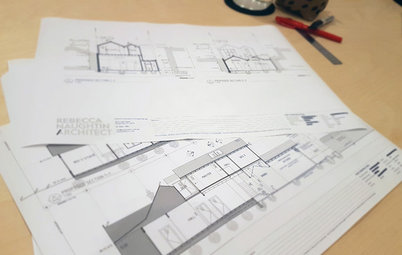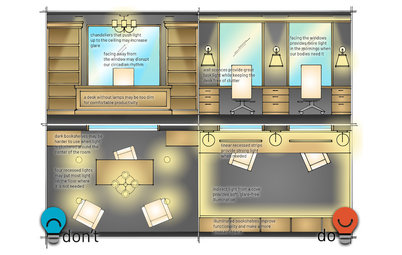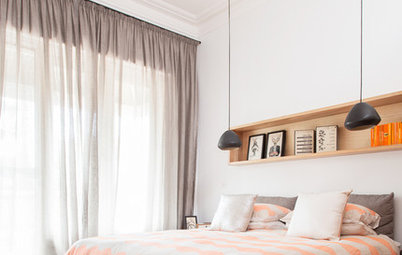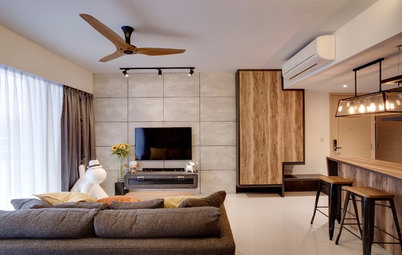How to Work From Home Alongside Your Spouse and Children
A time management coach talks through maintaining productivity during this 'circuit breaker' time
There’s no doubt that to contain the spread of Covid-19, the best solution is to limit physical interactions, and as a result, many people have been asked to work from home. But as much as we love our spouse and children, getting some work done while spending 24/7 with them can be challenging.
As a professional organiser and time management coach who help people bring efficiency into their life, but also as someone who has been working from home for the last 15 years, I can tell you that, whether you like it or not, you’re going to need some structure and discipline if you want to come out of this with your sanity intact.
As a professional organiser and time management coach who help people bring efficiency into their life, but also as someone who has been working from home for the last 15 years, I can tell you that, whether you like it or not, you’re going to need some structure and discipline if you want to come out of this with your sanity intact.
Make sure you have everything you need easily accessible without having to get up: laptop, phone, earphones, pen, notebook, diary, current projects files etc.
Put them away at the end of your work day (maybe in your work bag or a backpack) in order to mark the end of the work day and to help maintain order in your home.
5 ingredients for a home office that works
Put them away at the end of your work day (maybe in your work bag or a backpack) in order to mark the end of the work day and to help maintain order in your home.
5 ingredients for a home office that works
Establish a daily schedule
Without physical boundaries between work and home, it’s very easy to fall into the habit of making a call to a friend, playing with your children or attending to household chores whenever the thought crosses your mind.
But moving back and forth between different activities will affect your productivity and you’re very likely to end the day without having achieved much work. This might make you feel frustrated or impel you into staying up late to make up for it.
Without physical boundaries between work and home, it’s very easy to fall into the habit of making a call to a friend, playing with your children or attending to household chores whenever the thought crosses your mind.
But moving back and forth between different activities will affect your productivity and you’re very likely to end the day without having achieved much work. This might make you feel frustrated or impel you into staying up late to make up for it.
Instead, set aside dedicated time slots for all the activities you need, or want, to undertake: work, childcare, chores, exercise, social interaction, entertainment etc. Instead of spending time deciding what you’re going to be doing next or procrastinating on things you don’t enjoy doing, you’ll do them. And knowing that everything that needs to get done has a place in your schedule will allow you to be more focused on the moment.
When establishing your daily schedule, take into consideration your energy levels and concentration thresholds as well as other family members’ schedules.
When establishing your daily schedule, take into consideration your energy levels and concentration thresholds as well as other family members’ schedules.
Set some ground rules with your family, but with yourself too
Communicate your schedule to the rest of your family and ask them to be respectful of it as you commit to be respectful of theirs. Agree that if the door of the room where you work is closed, then you shouldn’t be interrupted. If you have young children who are unable to read, put a stop sign on the door they can easily recognise.
If you share the workspace with other family members, find a space where phone calls can be made in order to minimise disruptions to others.
Communicate your schedule to the rest of your family and ask them to be respectful of it as you commit to be respectful of theirs. Agree that if the door of the room where you work is closed, then you shouldn’t be interrupted. If you have young children who are unable to read, put a stop sign on the door they can easily recognise.
If you share the workspace with other family members, find a space where phone calls can be made in order to minimise disruptions to others.
Stick to your existing routines as much as you can. Get up and go to bed at the same time that you usually do to maintain some normality. Shower and get dressed instead of staying in your pyjamas to shift into work mode.
Be realistic about your work capacity
Chances are that you’re going to be more easily distracted at home than in an office environment. You may not have colleagues dropping by your cubicle for an informal chat, but your children, pleased to have you around, would want to hang around you.
Don’t hesitate to scale down your workload a little so that you don’t end the day frustrated by what you haven’t been able to accomplish. Maybe aim for six hours of real work compared to the eight you put in at the office.
Chances are that you’re going to be more easily distracted at home than in an office environment. You may not have colleagues dropping by your cubicle for an informal chat, but your children, pleased to have you around, would want to hang around you.
Don’t hesitate to scale down your workload a little so that you don’t end the day frustrated by what you haven’t been able to accomplish. Maybe aim for six hours of real work compared to the eight you put in at the office.
The best way to achieve this is to end each working day by planning your next day. List down all your tasks and estimate the time it will take you to do each of them. If you have too much on your plate, ask yourself for each task whether you can delete it, delay it, diminish it or delegate it so you can focus on your true priorities.
You’re not being unprofessional, irresponsible, careless or lazy by making those decisions. On the contrary, it means you’re making well-thought out decisions about how to use your time.
You’re not being unprofessional, irresponsible, careless or lazy by making those decisions. On the contrary, it means you’re making well-thought out decisions about how to use your time.
Cut down on digital distractions
The amount of information circulating right now around Covid-19 is phenomenal: government updates, news articles, TV shows, social media posts, emails, text messages from family and friends etc. That makes it extremely difficult to resist the urge to keep up.
But the thing is, you could easily be spending the whole day just reading and watching the news. And when you’re not at it, feeling down trying to digest the sad and worrying news and all the negativity going around. It then becomes impossible to get work done.
In order to stay focused on the task at hand, turn off notifications on your social media accounts. If you still feel compelled to check your phone, put some physical distance between you and the device to make it more difficult for you to reach for it out of impulse. Allocate some time during the day to go onto these various platforms to satisfy your need for information.
The amount of information circulating right now around Covid-19 is phenomenal: government updates, news articles, TV shows, social media posts, emails, text messages from family and friends etc. That makes it extremely difficult to resist the urge to keep up.
But the thing is, you could easily be spending the whole day just reading and watching the news. And when you’re not at it, feeling down trying to digest the sad and worrying news and all the negativity going around. It then becomes impossible to get work done.
In order to stay focused on the task at hand, turn off notifications on your social media accounts. If you still feel compelled to check your phone, put some physical distance between you and the device to make it more difficult for you to reach for it out of impulse. Allocate some time during the day to go onto these various platforms to satisfy your need for information.
Don’t sacrifice self-care
Self-care is more important than ever during these unsettling times to help keep our spirits up. Use the time you used to spend commuting each day to do things that will bring you joy or calmness. Again, the key is to allocate time for this in your schedule if you want to make it happen.
Some of you might feel isolated spending more time than normal at home, so it’s important to maintain some form of interaction with your family and friends through regular video calls for example.
On the other hand, some of you might feel suffocated spending so many hours with the immediate family and will need to build in some ‘me time’ without feeling guilty about it, whether it’s reading a book or taking a relaxing bath.
4 small ways to look after your health at home
Self-care is more important than ever during these unsettling times to help keep our spirits up. Use the time you used to spend commuting each day to do things that will bring you joy or calmness. Again, the key is to allocate time for this in your schedule if you want to make it happen.
Some of you might feel isolated spending more time than normal at home, so it’s important to maintain some form of interaction with your family and friends through regular video calls for example.
On the other hand, some of you might feel suffocated spending so many hours with the immediate family and will need to build in some ‘me time’ without feeling guilty about it, whether it’s reading a book or taking a relaxing bath.
4 small ways to look after your health at home
Tell us
What do you find most challenging in trying to be productive and sane while working from home? Tell us all about it in the Comments, like this story, save the images for inspiration, and join the conversation.
More
Find a renovation professional in Singapore
Browse more Singapore photos for design inspiration
What do you find most challenging in trying to be productive and sane while working from home? Tell us all about it in the Comments, like this story, save the images for inspiration, and join the conversation.
More
Find a renovation professional in Singapore
Browse more Singapore photos for design inspiration



















If you don’t have the luxury of having a home office, find a quiet corner where you can work undistracted, ideally away from the rest of your family. It can be the dining table, the couch or the bed.
It’s best if you make this spot your regular working space as familiarity helps to get into work mode faster as opposed to having to find your marks every time you change spots.